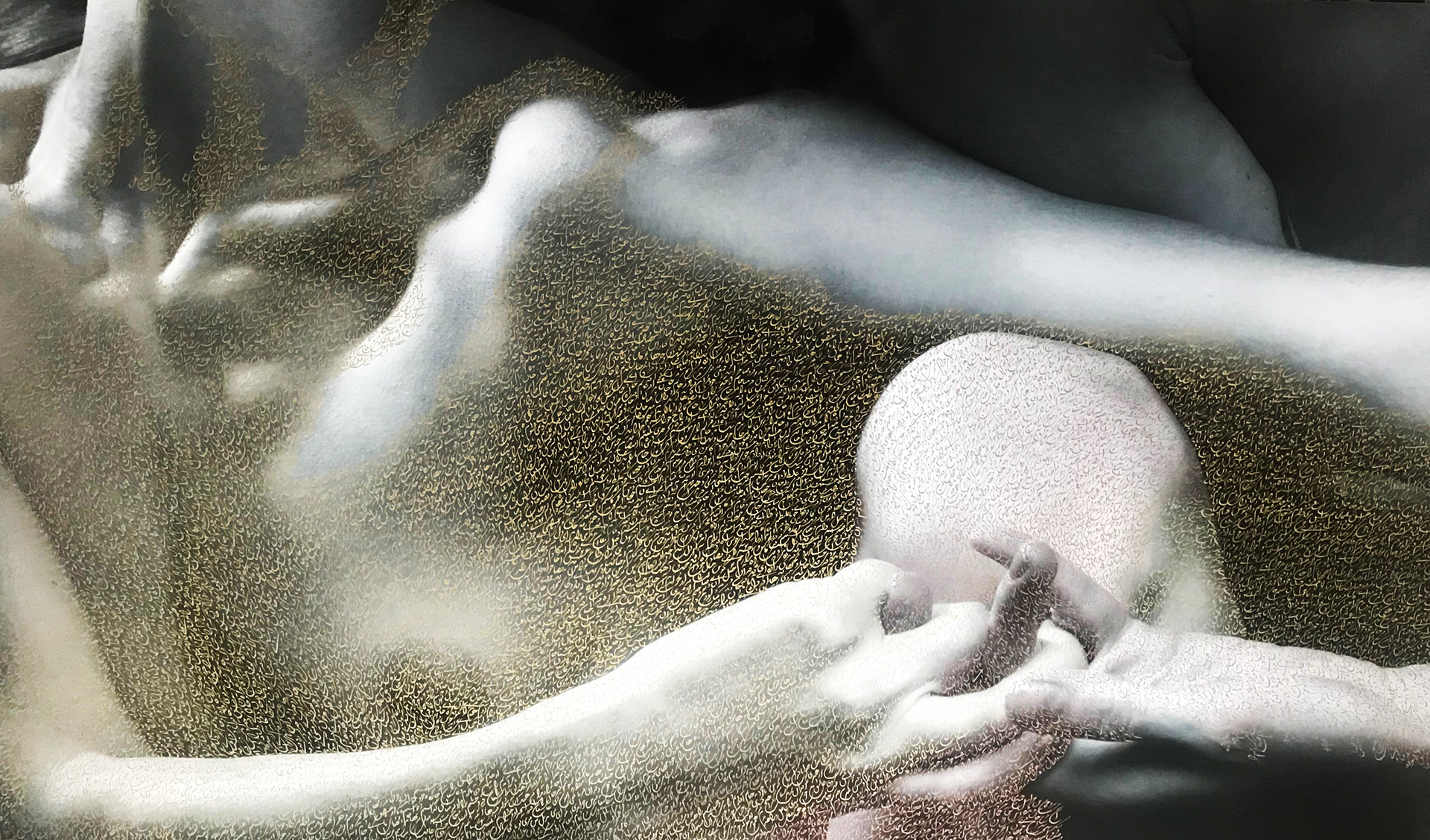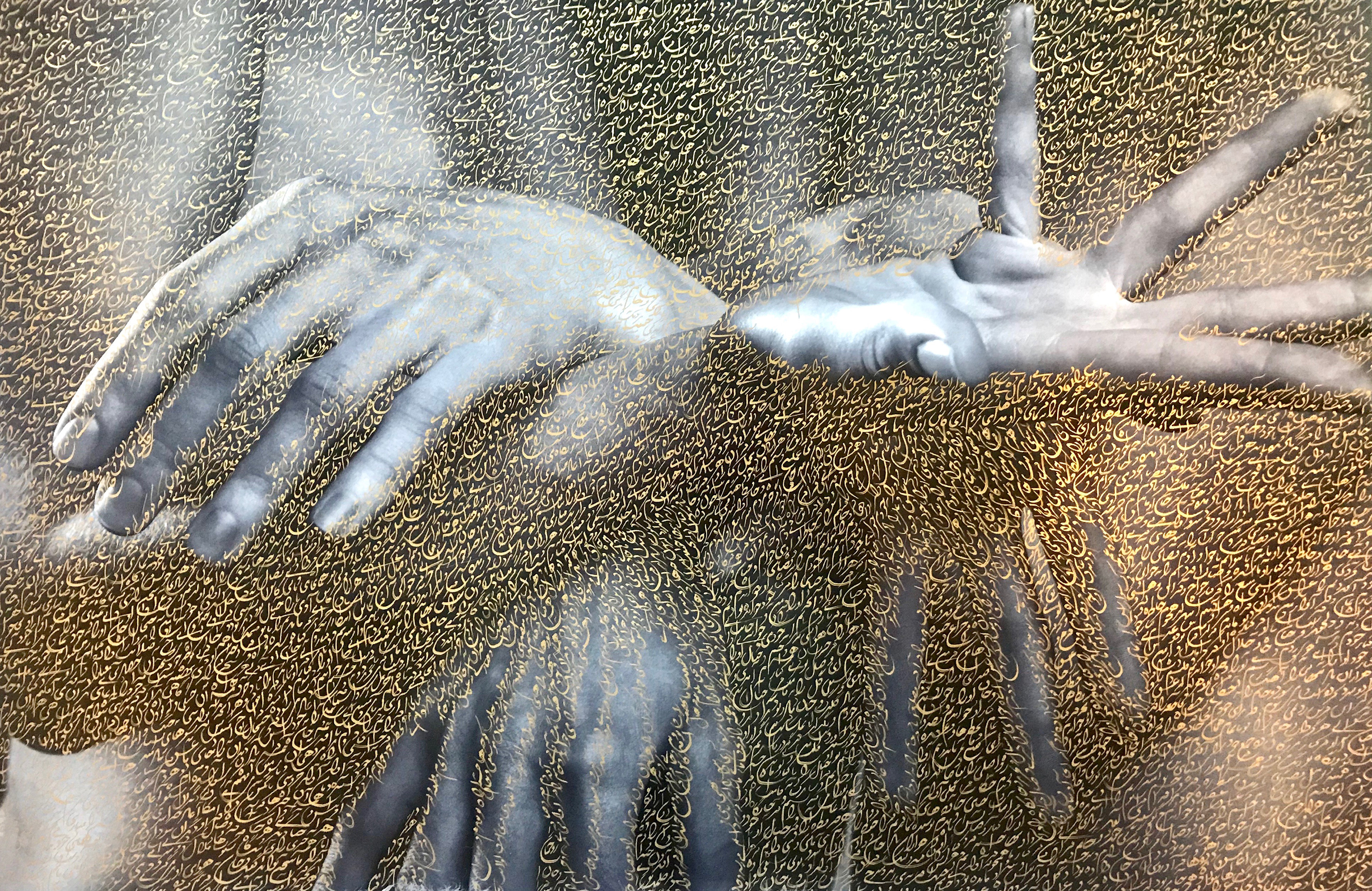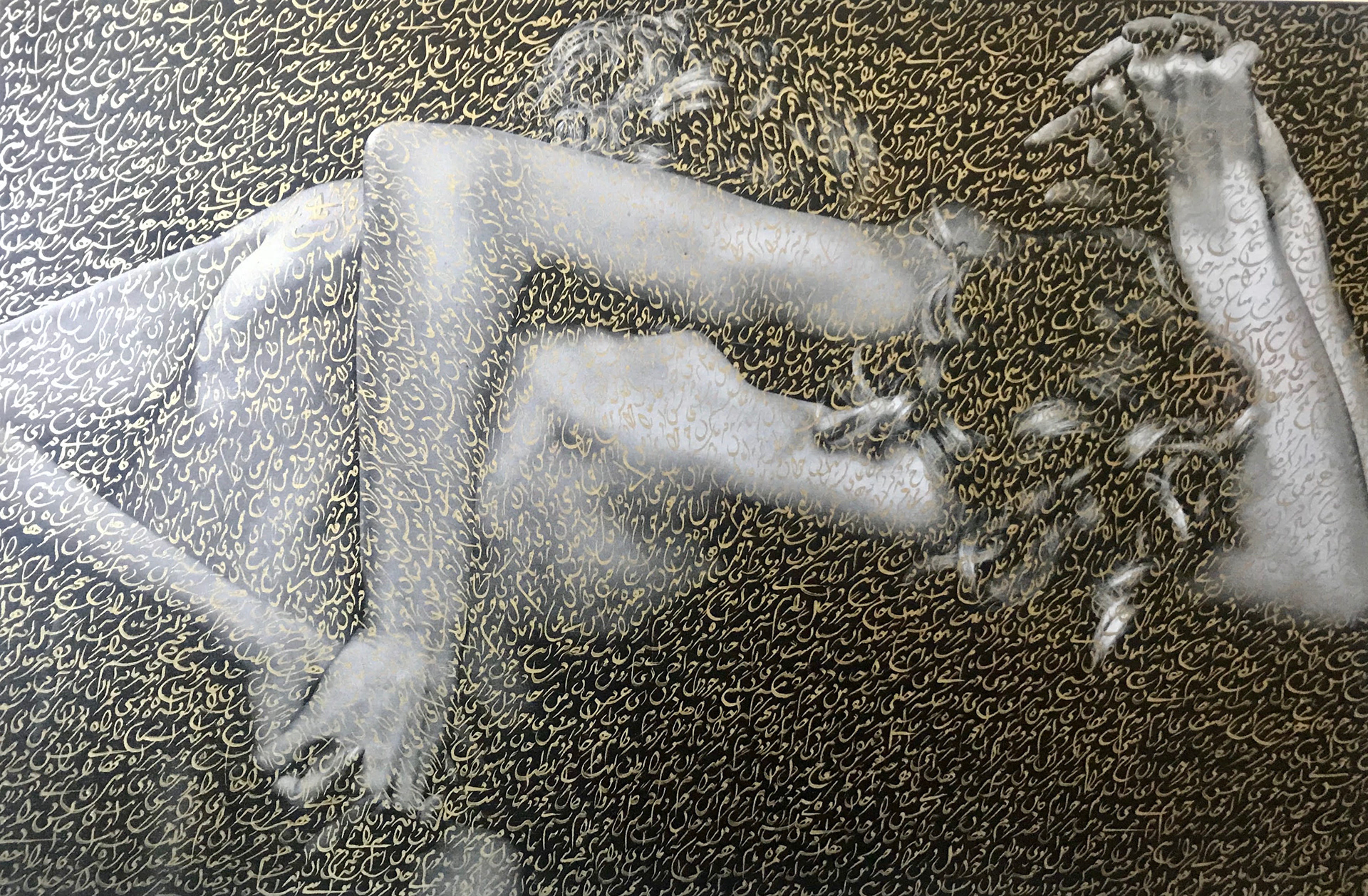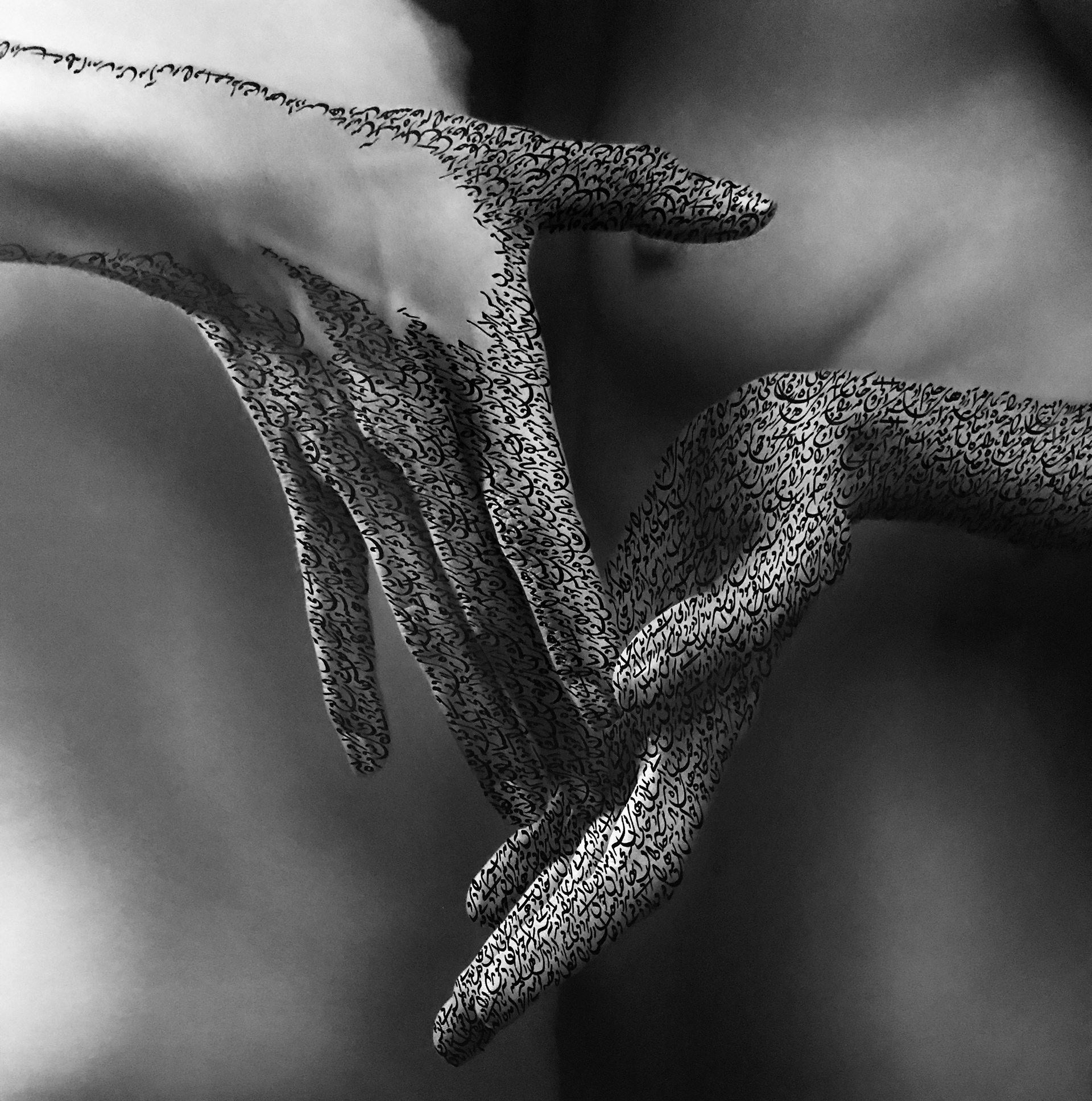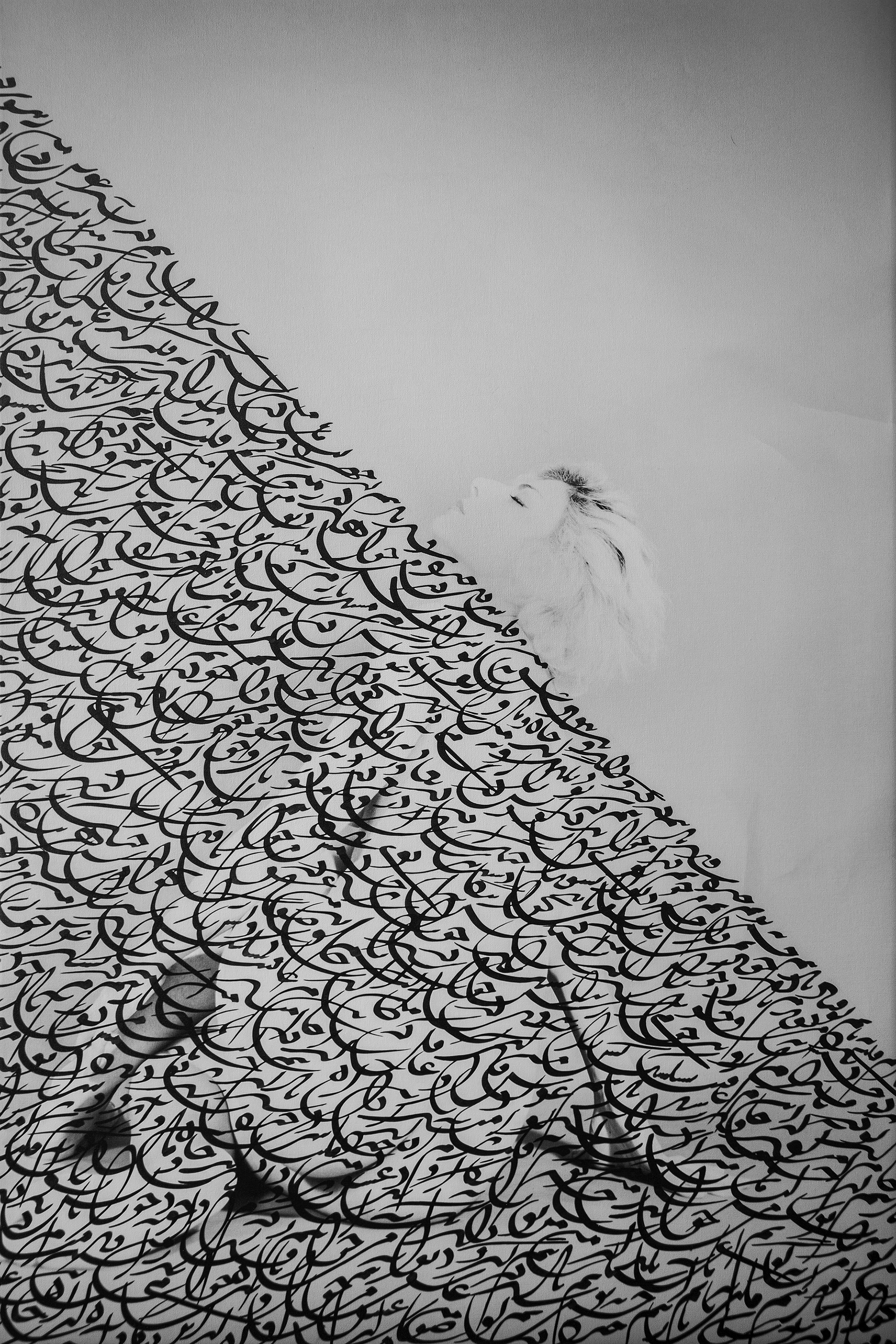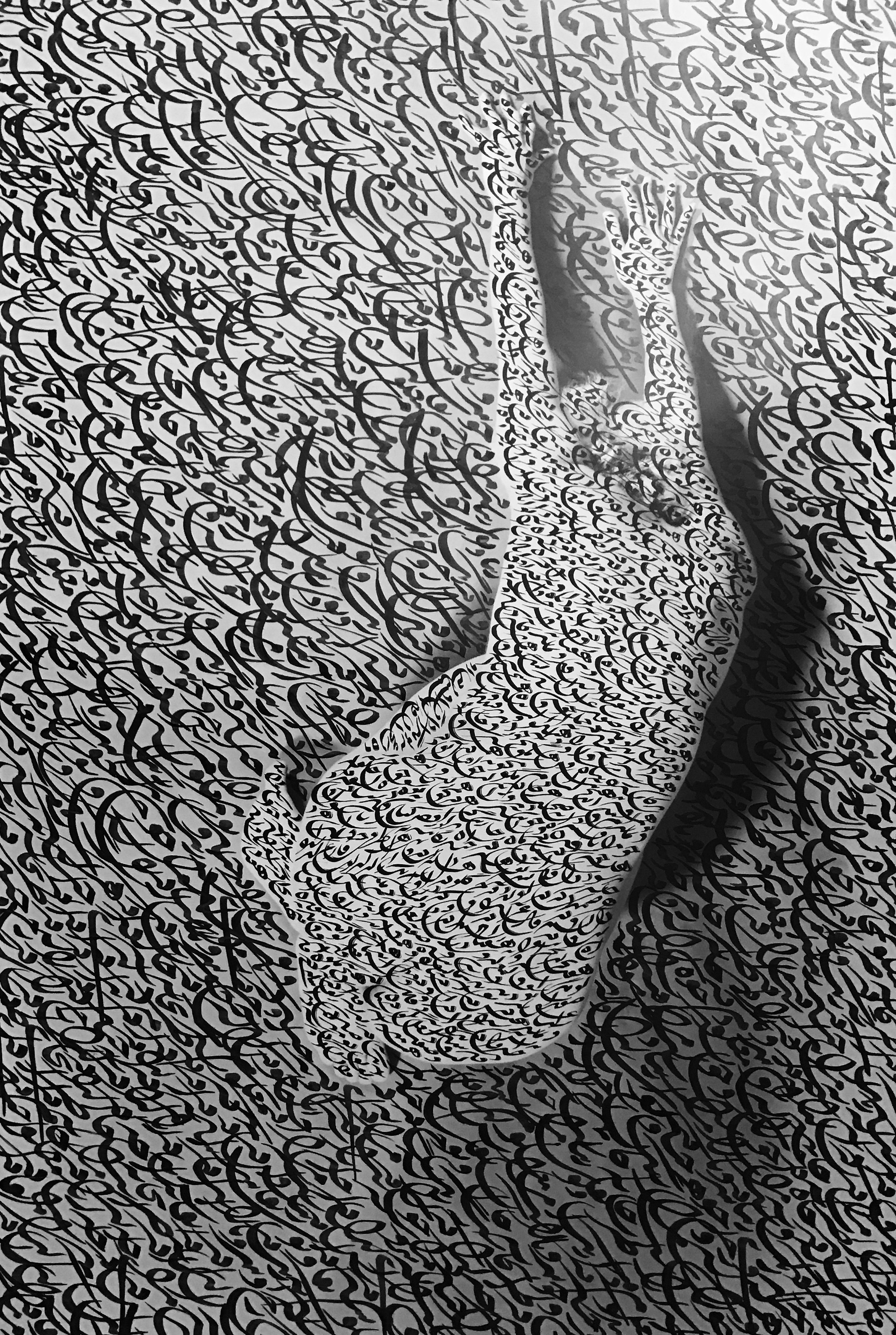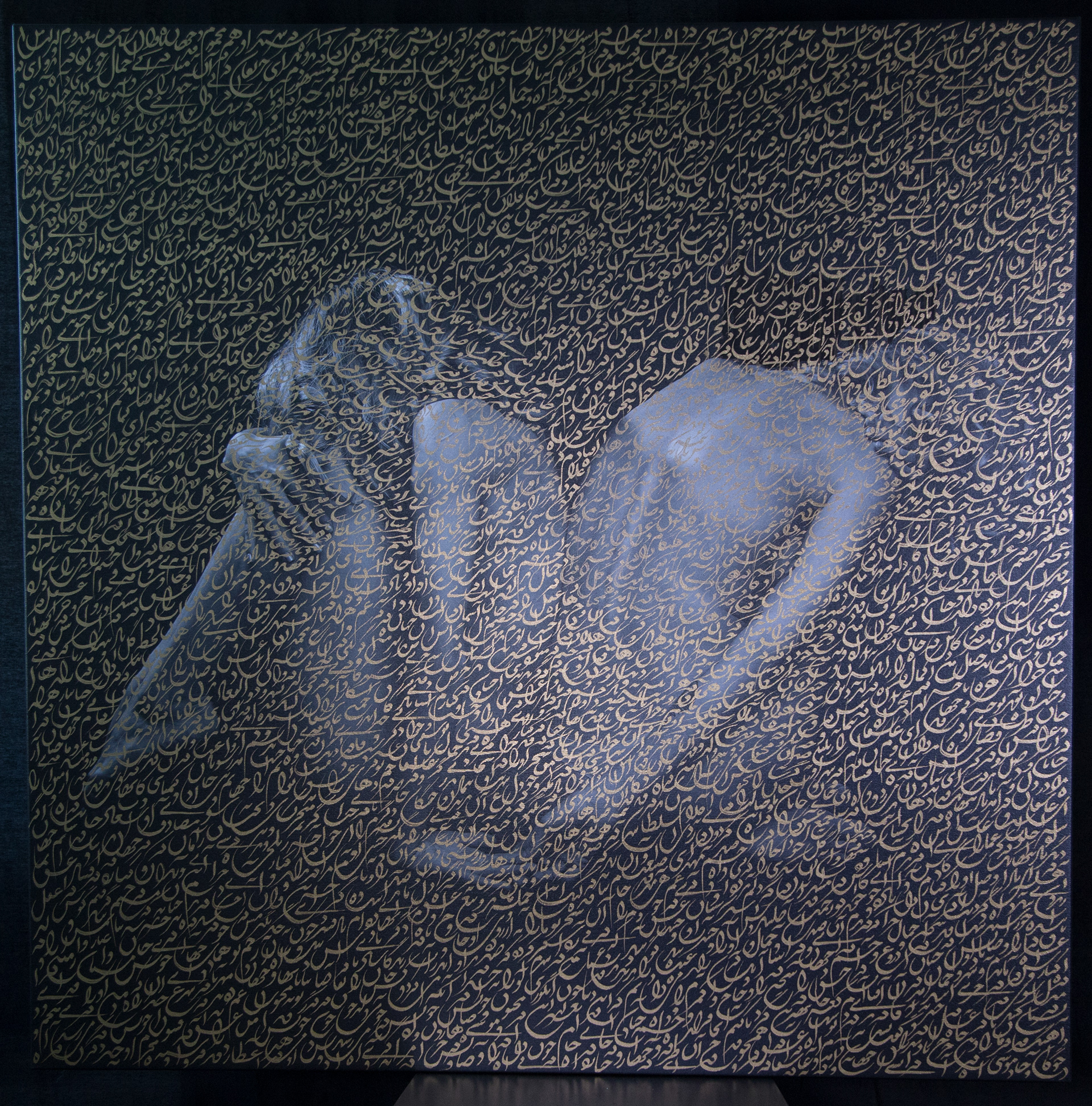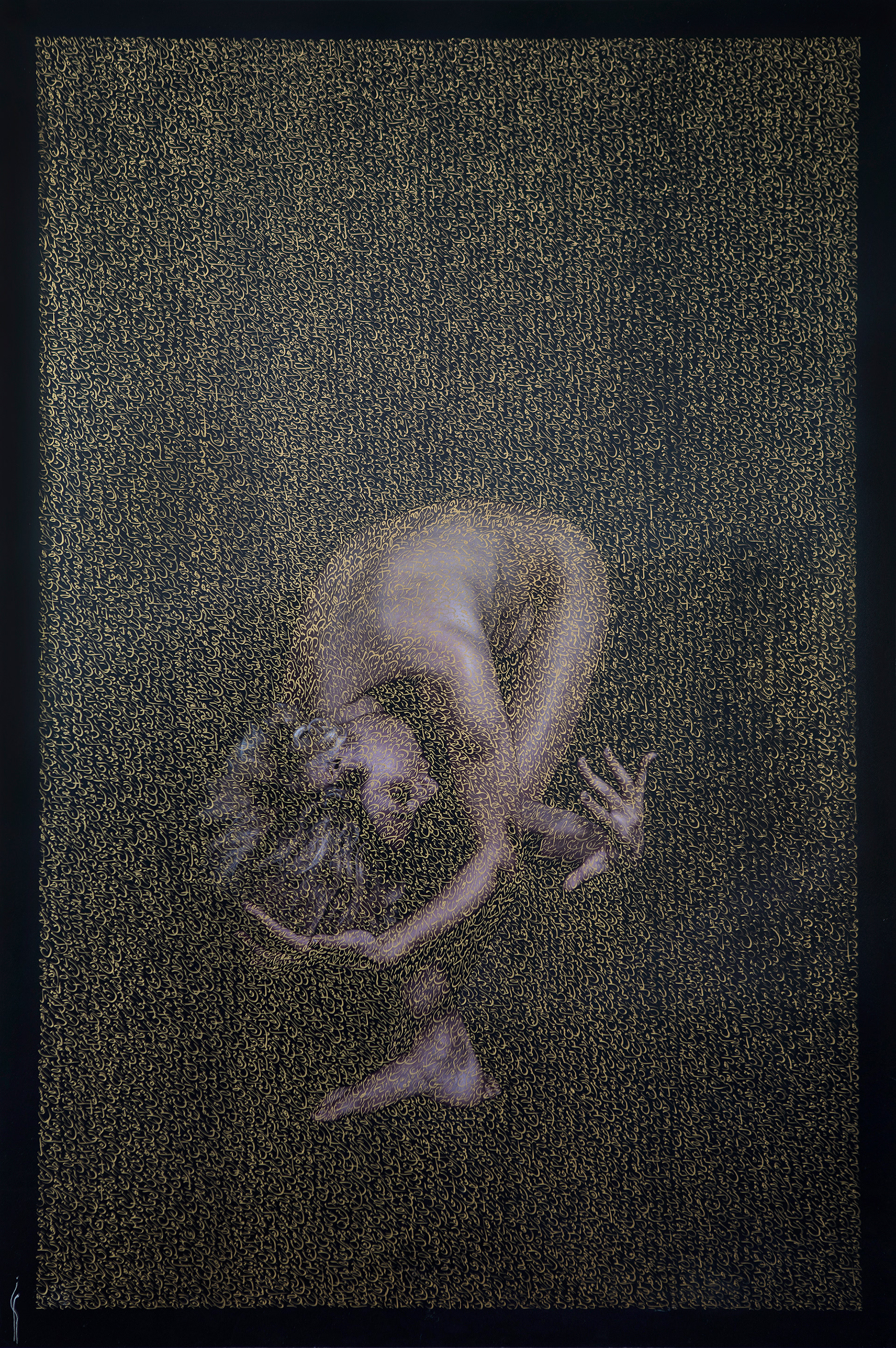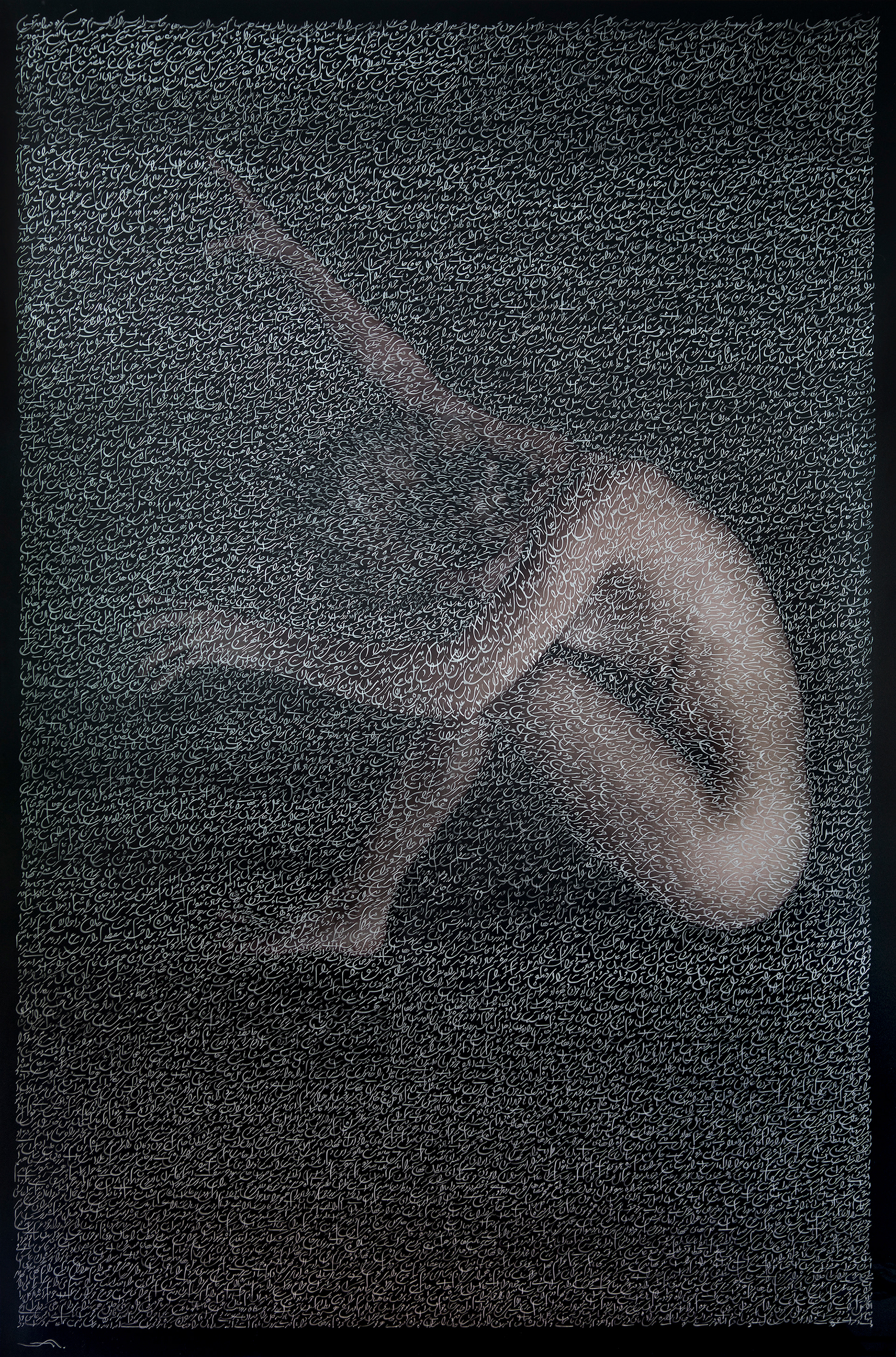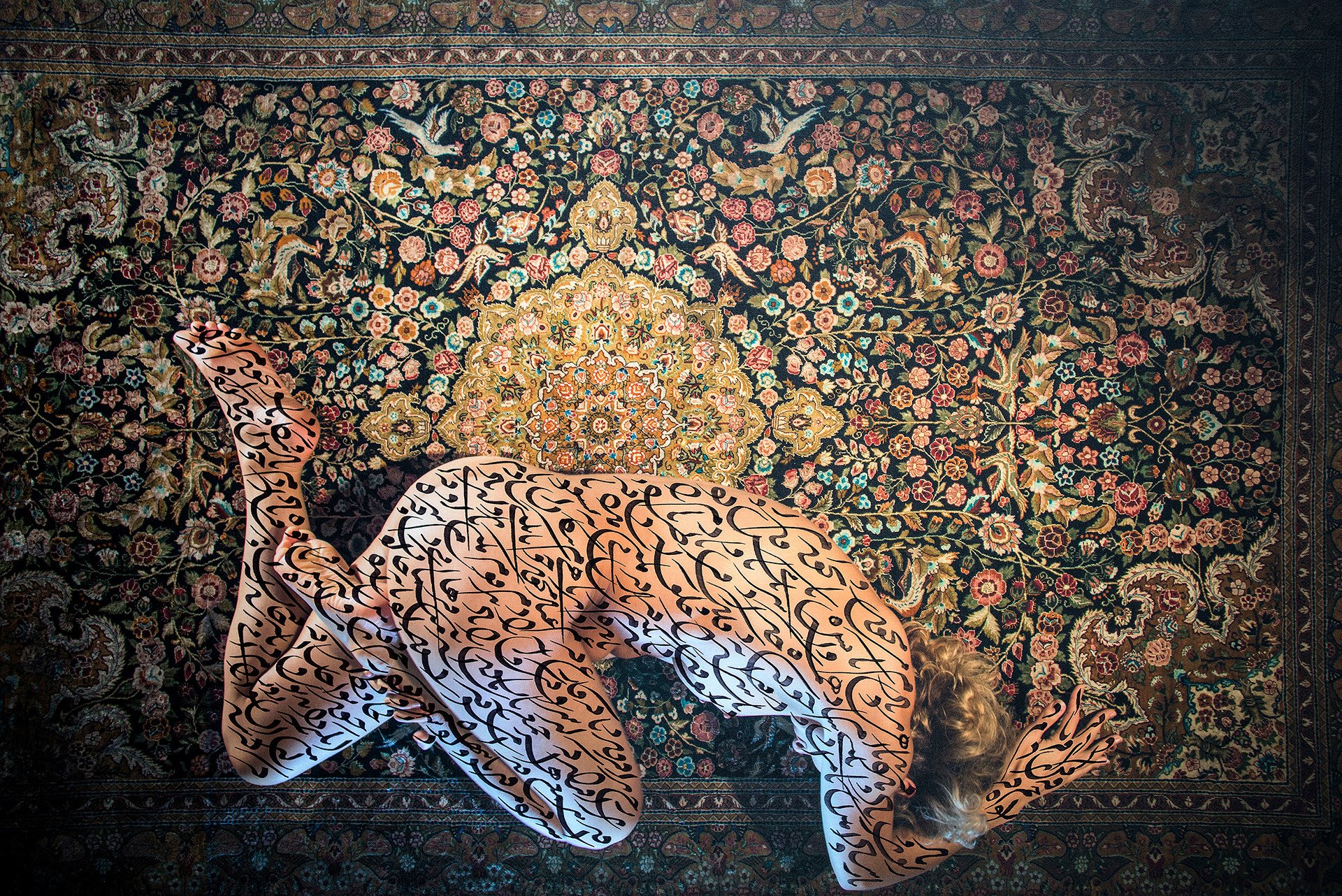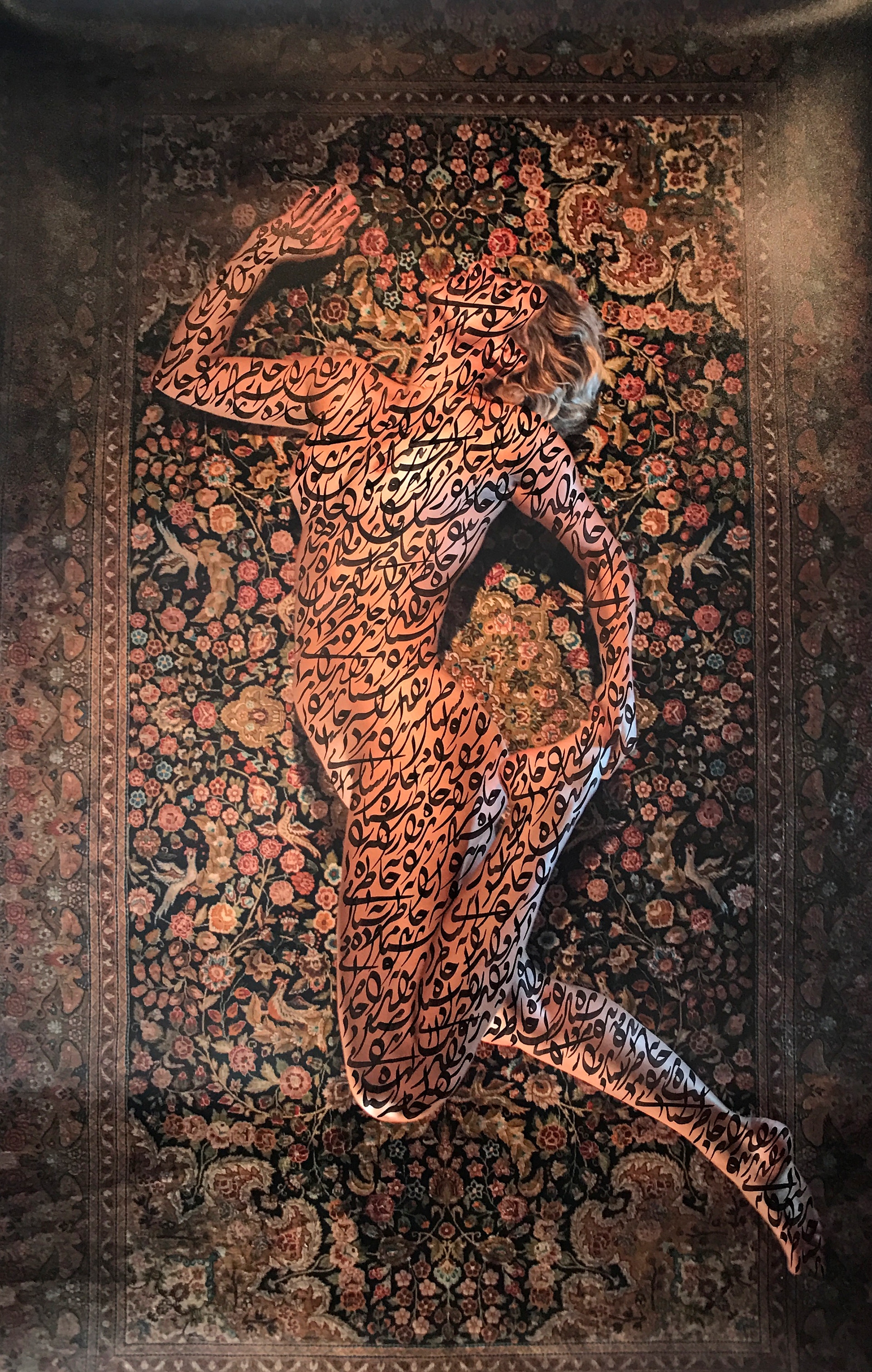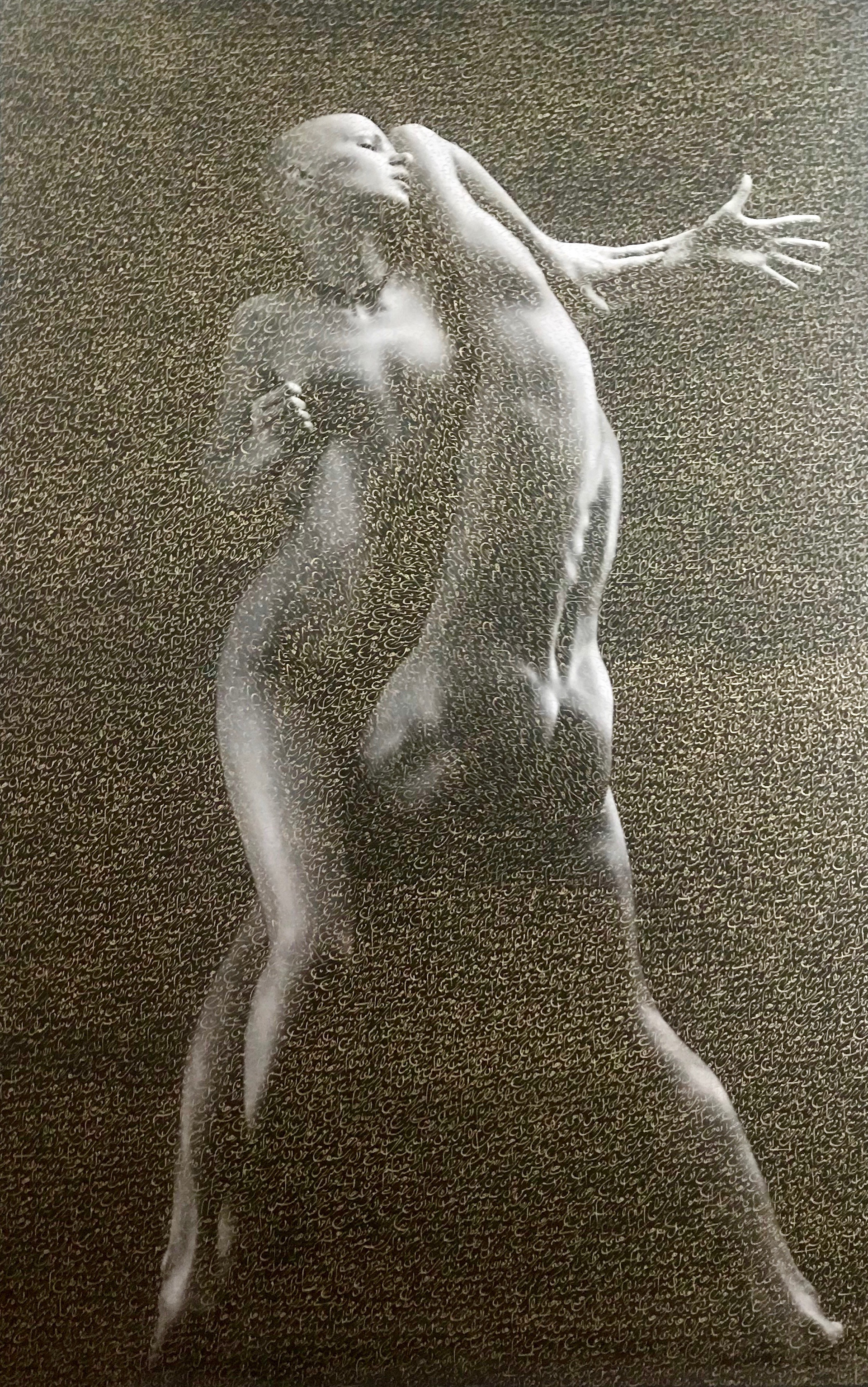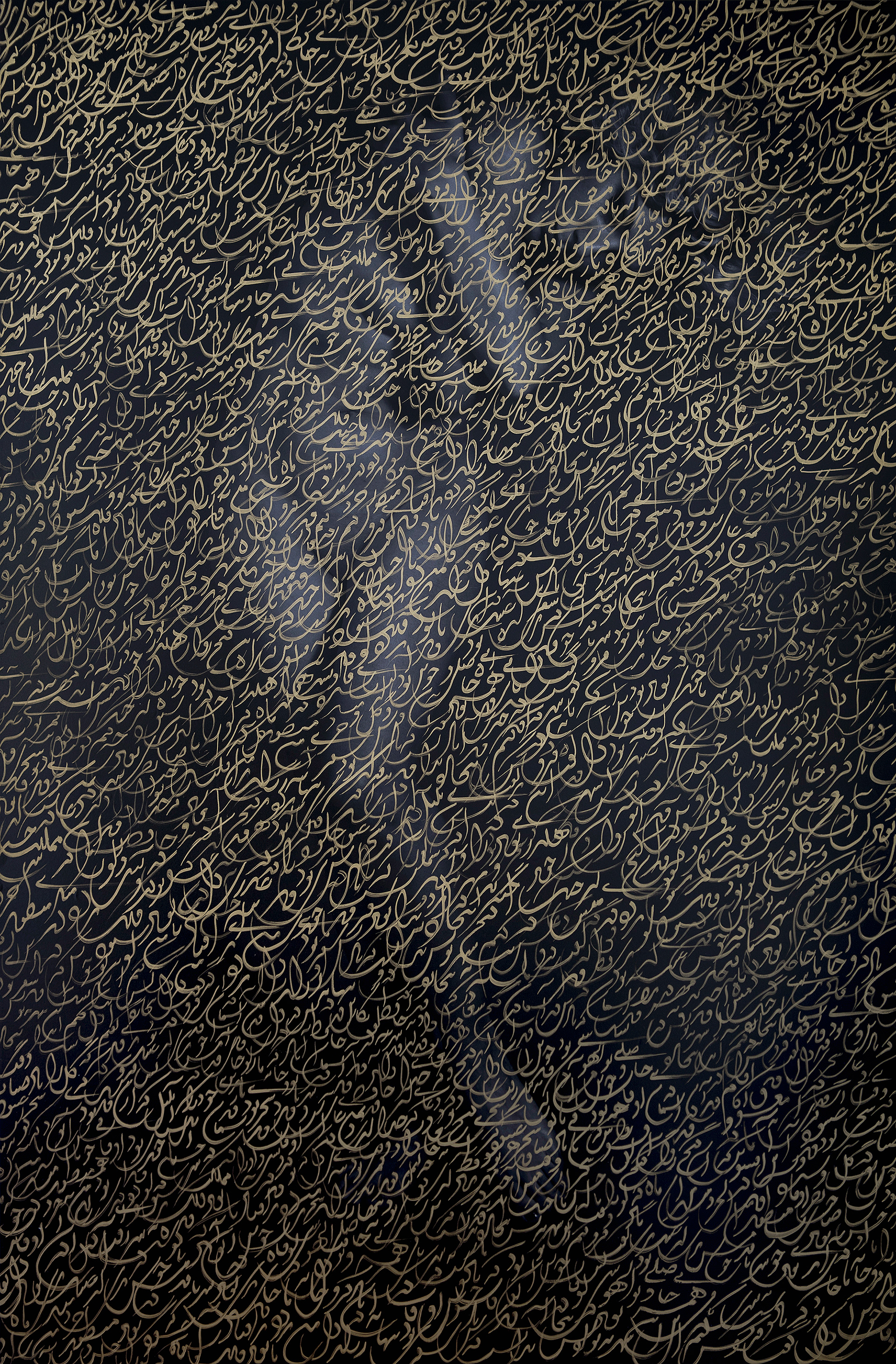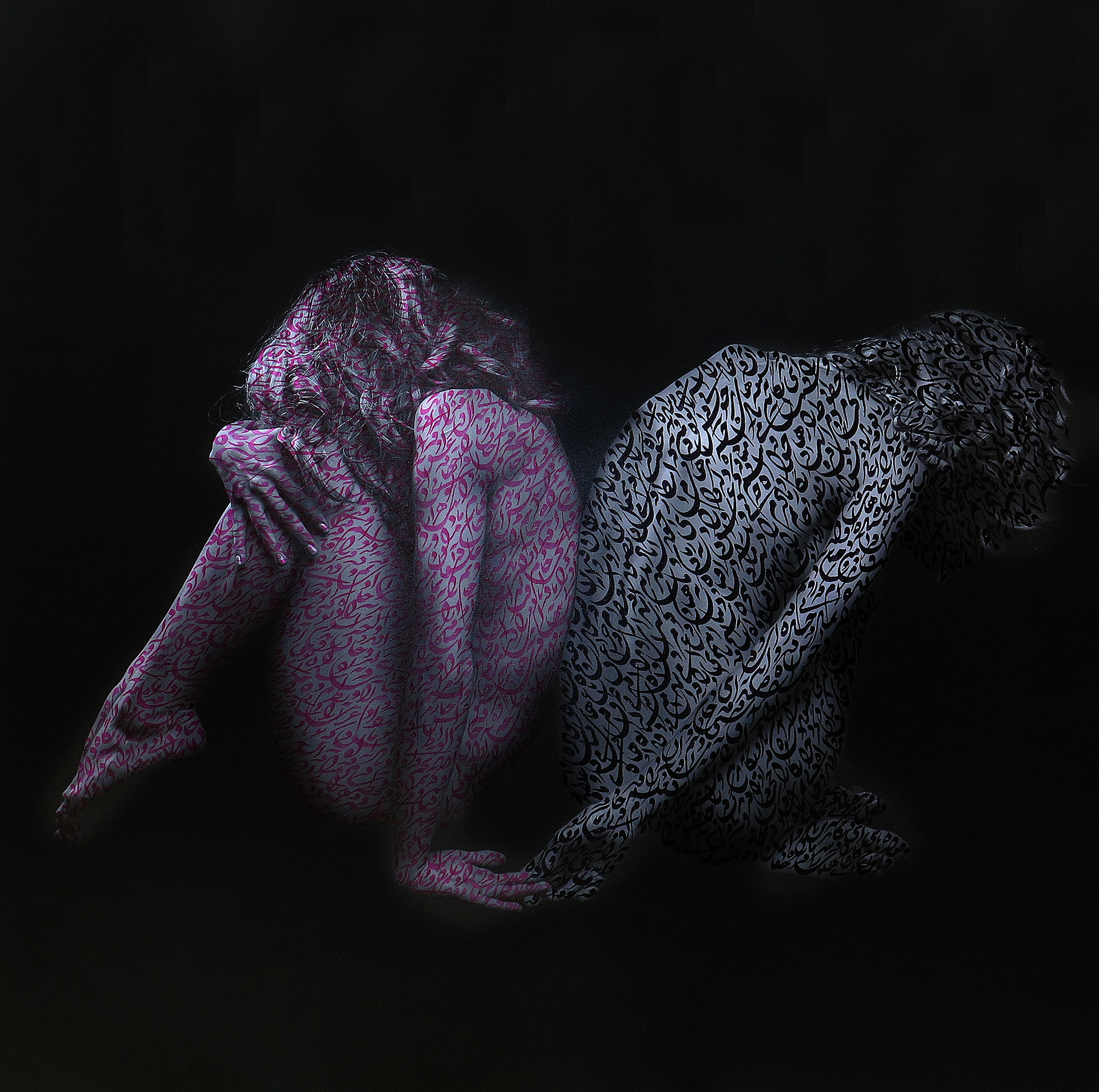Artist Statement
Mobina Nouri’s art routinely takes Iran’s rich literature as a lens through which to explore broader social issues in the modern world including gender balance, identity trouble and censorship. In the Poetography series, Persian poetry, with its concern for life’s lessons, forms an anchor between the past and present. By retracing and redefining its expressions, rooted in philosophy and mysticism, Nouri untangles personal gendered experiences in the East and West. Poetography lies at the intersection of multiple axis: East and West; figurative and abstraction; contemporary and traditional and was produced in collaboration with other musicians and photographers, combining multiple visions in order to collapse unilinear thinking.
Through the traditional Siah-Mashgh method of calligraphy, Nouri transposes poetic verses much-like a tattoo in monochrome, gold or silver, onto photographs of the female form. By converging the two she seeks to dismantle the various cultural and religious orders that have been imposed upon both women’s bodies and Iran’s cultural texts. She questions how ritual and regime relate to the elevation of language and what these words, associated with a high social space, mean to the viewer when inscribed across the naked body.
The artist worked first with her own image to navigate her personal experiences as a female immigrant caught between cultures, apparent in works such as Cascade (2018), before turning her visual vocabulary towards the limitations which have been imposed upon women internationally. Love Extension (2018) was shot in collaboration with Russian female photographer, Darya Orlova, who captured the bodies of two nude female figures, entwined. Nouri’s script, grazing their skin like a veil, seeks to foreground the shroud that continues to constrain homosexuality in many societies including that of her homeland.
By subtly distorting poetic verses so that the sentiments are recognisable yet barely legible Nouri crafts a language that might speak of the sublime but remains lost in translation. Through her creation of metaphors, the artist removes women from the mundane space that has been circumscribed to them and aligns with the pursuit of knowledge and the articulation of a reality that exists beneath the perceptible surface. “The ability of the written word to unlock a space for the scrutiny of social issues, particularly relating to gender, underpins Poetography. I write Rumi, Hafez, Khayyam and other great Persian poets onto the female form, letting their powerful expressions and collective consciousness flow out, like musical notes to form a visual symphony. Poetography invites the viewer to soften their gaze, quiet their mind, and allow themselves to enter a receptive state where they might reconsider the status quo anew.”
